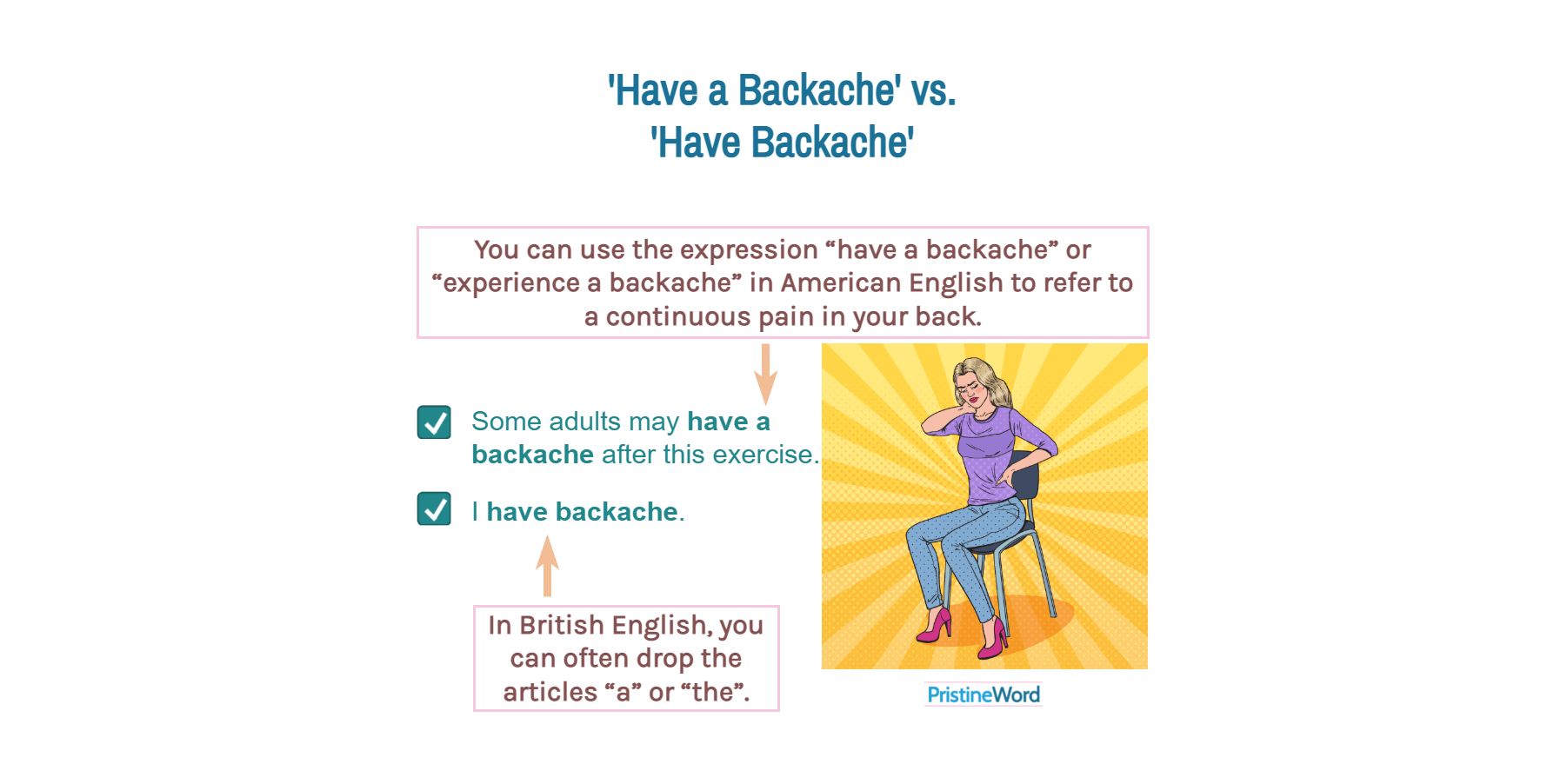You can use the expressions “have a backache” or “experience a backache” in American English to refer to a continuous pain in your back.
In American English, you can use the expressions “have a backache” or “experience a backache” to refer to a continuous pain in your back.
Some adults may have a backache after this exercise.
In standard British English, you can drop the articles “a” or “the”.
Over 70 percent of the population will experience backache at some point in their lives.
1. Backache in American English
When we have or experience a backache, we have a prolonged pain in the back, typically in the lower back.
Most pregnant women experience a backache due to weight gain.
In American English, the word backache is countable.
After many hours and several backaches, he found the solution to the equation.
Countable nouns usually take a determiner (a, the, my, your, two, several, many, etc.).
The backache was caused by arthritis.
My backache improved over time.
Follow the same practice with related expressions, such as “get a backache”, “experience a backache”, “cause a backache”, etc.
I got a backache.
The bed was too soft and caused a backache.
When talking about backaches in general, we omit the determiner.
Backaches can be reduced in a healthy way.
But use a determiner ("some" in the example below) to mention a specific group of backaches.
Some backaches can be relieved by practicing yoga.
A partial list of other symptoms that require a/an:
- Allergy
- Cold
- Cough
- Cramp/Muscle Cramp (The article can be omitted in British English.)
- Earache (The article can be omitted in British English.)
- Fever (The article can be omitted in British English.)
- Headache
- Heart attack
- Runny nose
- Sore throat
- Stomachache (The article can be omitted in British English.)
- Stroke
- Toothache (The article can be omitted in British English.)
2. Backache in British English
In British English, the noun backache can be both countable and uncountable; thus, we can say:
I have backache.
I have a backache.
We can also use the plural form of the word and include a determiner ("your" in the example below) to identify or quantify the noun.
Your backaches should be treated as soon as possible.
Leave it out, however, to talk about backaches in a general sense.
Backaches are very common in older age.

